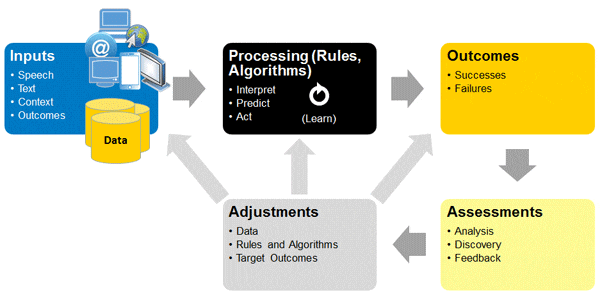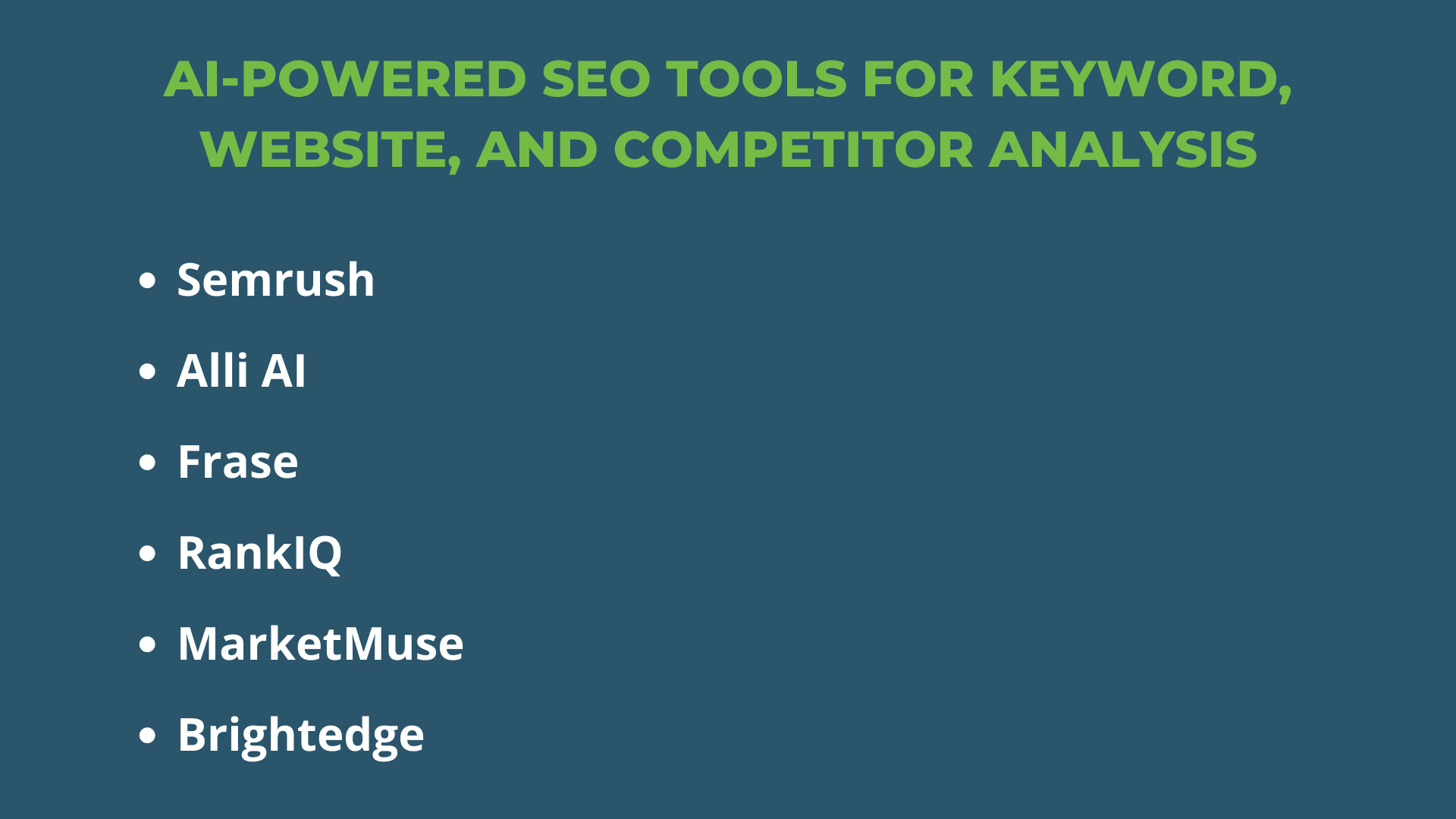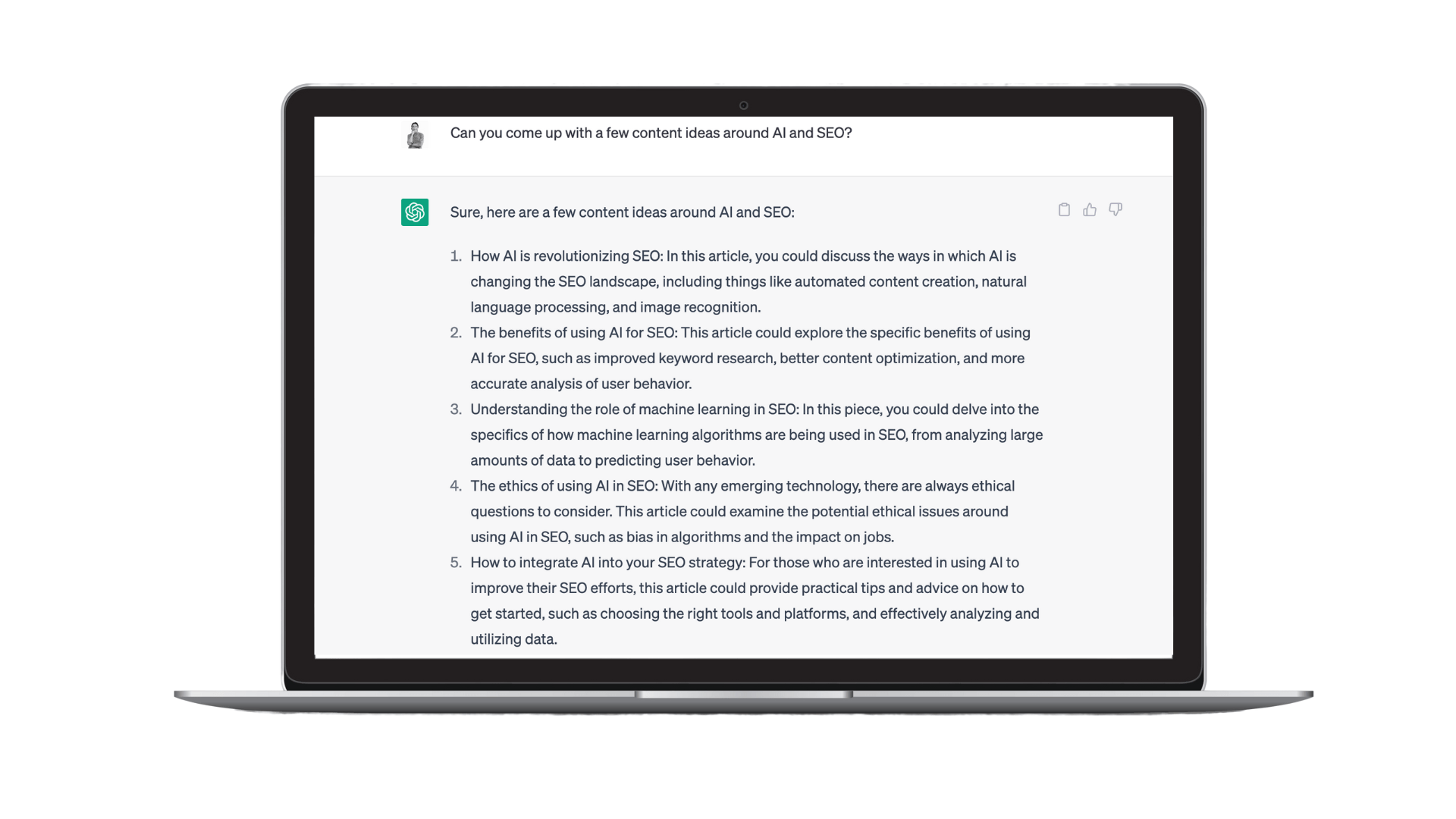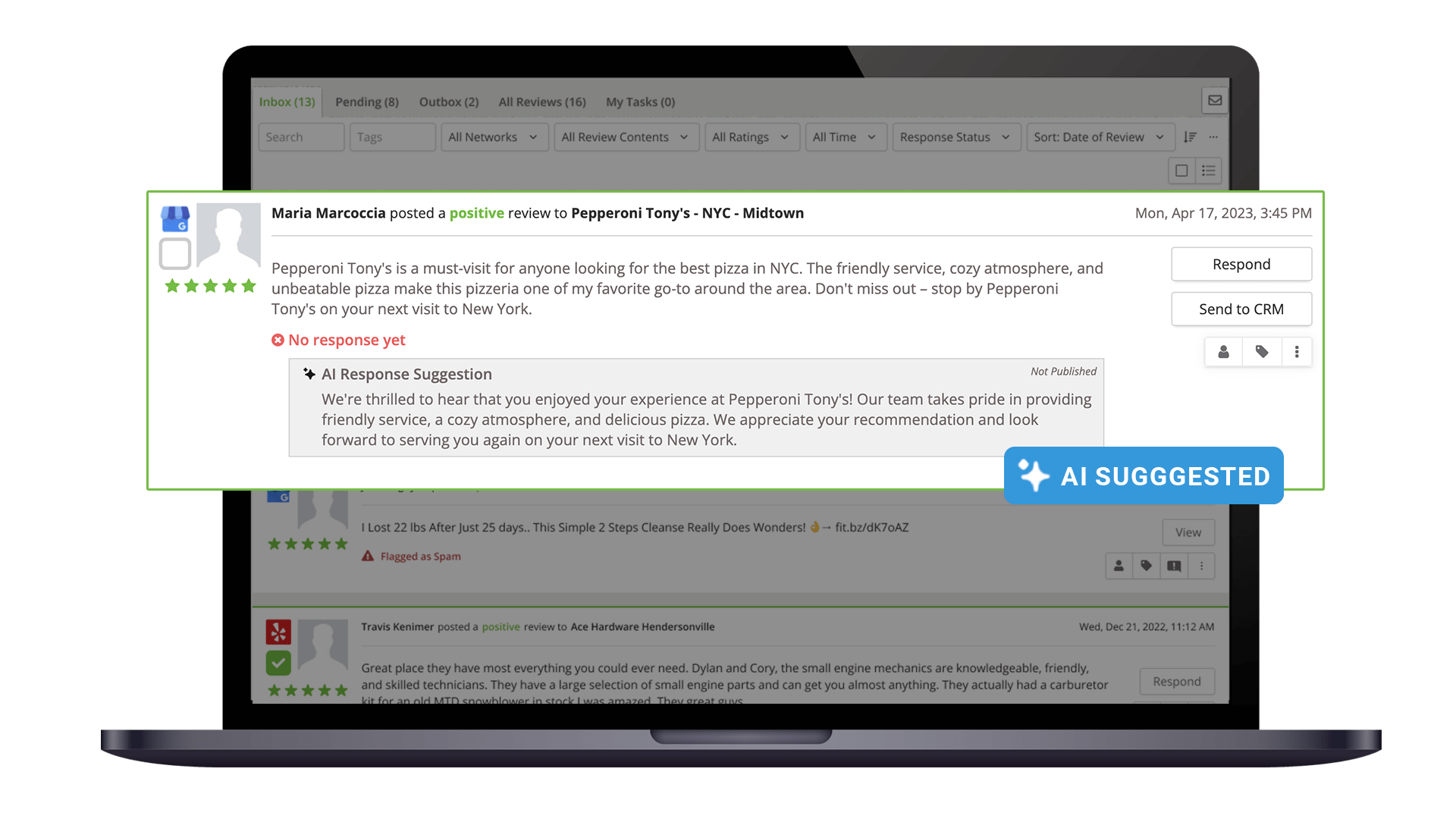AI and SEO: How AI Can Enhance Your SEO Efforts

AI and SEO: How AI Can Enhance Your SEO Efforts
Since late 2022 we’ve witnessed a meteoric rise of advancements in artificial intelligence (AI) technology. Just about every information-centric industry has responded with excitement, and some trepidation, to the potential of these AI advancements, and this has certainly been the case in marketing and search engine optimization (SEO). According to a recent report, over two-thirds of content marketers plan to use AI in 2023. AI has already impacted, and will continue to impact, how search engines operate, how individuals interact with search engines, and how you, as a multi-location marketer, must think about SEO from now on. This article will explain how AI is already being used in SEO-related technology and how to use this technology to your advantage. We’ll also discuss how to best prepare for the future of AI and SEO.What is AI?
Before going further, we need to establish a basic knowledge of what AI is. Modern AI involves the development of computer systems that can perform tasks that typically require human intelligence, such as language translation, speech recognition, decision-making, and visual perception. AI achieves these tasks by using various related technologies, such as machine learning (ML), natural language processing (NLP), and deep learning (DL), to create models that can learn from and make predictions based on large datasets as well as inputs from users.
Courtesy of Strategic Contact
AI in Search Engines
AI has existed in search engines for several years. For instance, a key component of Google’s search engine since 2015 is a machine learning model known as RankBrain. RankBrain helps the search engine access and manage Google’s Knowledge Graph, which organizes information and helps Google to surface relevant results for user queries. Furthermore, in October 2018, Google introduced BERT (Bidirectional Encoder Representations from Transformers). BERT helps Google better understand the intent behind user queries — especially when those queries have complex syntax. A third machine learning model, MUM (Multitask Unified Model), helps Google translate information from one language to another and across media such as text and images. The critical importance of models like RankBrain, BERT, and MUM in modern search engines should signal to SEO professionals, and to businesses marketing themselves online, that search optimization isn’t just about links anymore. Search engines use machine learning to ensure that the content served up in search results meets Google’s E.E.A.T. criteria (Experience, Expertise, Authority, and Trustworthiness). Your content must meet these criteria to be competitive. It’s also worth noting that Google is reportedly working on an entirely new search engine that’s centered around AI, as well as integrating AI into its current search platform under the code name Magi.Six Ways to Use AI in SEO Now and in the Future
You should now have a better understanding of what AI is and of its current usage in search engine algorithms. Below, we’ll discuss a few ways you can use AI in your general and local SEO efforts and how AI will impact the future of search.1. Better Keyword Research and Opportunity Identification
As a multi-location business, you should create keyword-driven content such as blogs, whitepapers, and reports. You should also include long-tail keywords on your product pages and throughout your website to help improve search engine results page (SERP) rankings. It’s worth investing in AI-powered SEO tools to maximize your keyword research, to audit your and competitors’ websites, and to automate SEO-related tasks. Here are a few of the best AI-SEO tools for keyword research and website analysis:
2. Content Optimization
As mentioned, Google’s search algorithm uses BERT, MUM, RankBrain, and other NLP and AI technology to match web pages to users’ queries. Thus, it’s essential to create high-quality and relevant content. AI technology can help optimize and automate your content creation process. For instance, you can use Open AI’s ChatGPT or Google’s Bard to initiate content ideas, help team members and writers better understand a topic, or help them draft outlines, meta descriptions, or title tags. Below is an example of a response from ChatGPT when asked to produce a few content ideas around AI and SEO.
3. Predictive Rankings
Earlier, we mentioned that you could use AI-powered SEO tools to conduct keyword research and optimize your content. Some SEO tools use machine learning algorithms and competitor analysis to predict your website’s keyword ranking potential. Some of these AI-SEO tools with predictive rankings capabilities include:- MarketMuse
- CanIRank
- Ahrefs
- Semrush
- SE Ranking
4. Local SEO Rankings
For multi-location companies, you must have a local SEO or local search strategy. We found that Google Business Profiles (GBPs) in the coveted Google 3-Pack receive 126 percent more traffic and 93 percent more conversion-oriented actions than businesses ranked 4-10. Publishing locally relevant content can help you gain more local customers. For instance, on your GBPs, you can utilize AI to publish high-quality:- Google Posts
- Google Q&A FAQs and responses
- Keyword-optimized content for business descriptions
5. Improve Customer Experience Through Review Response
Ratings and reviews impact consumers' and search engines’ perceptions of your local business. According to local SEO experts, high numerical Google ratings and quantity of ratings and reviews (with text) highly impact your local pack/finder rankings. Responding to reviews is one way to improve your customer experience (CX) marketing and local search rankings. Responding to reviews shows current and potential clients you care about and are attentive to their opinions. Our The State of Google Reviews research report found that for every 25 percent of reviews responded to, conversion of GBPs improves by 4.1 percent. You can utilize AI to help you manage and quickly draft authentic responses to online reviews. If you need help managing your listings’ reviews, consider using SOCi Genius Reviews. SOCi Genius Reviews integrates our review response management tool with OpenAI’s GPT-4 to help you create customizable and intelligent reviews and automate your review management process. Together, this product can help you meet the 24-hour response time that 40 percent of consumers expect after publishing a negative review.
6. Optimize for Voice Search
As AI technology advances, so will voice search. Half of the U.S. population uses voice search technology daily. Why? Because it’s convenient and provides an easy way for consumers to learn more about a business’s products and services. If you’re not familiar, voice search — often called voice-enabled search — lets someone use a voice command to search the internet or an app. As a multi-location marketer, you should begin to target voice SEO — the optimization of keywords and queries for voice-assisted searches. You can utilize several of the SEO techniques and AI-powered SEO technologies we mentioned to optimize your content and website for voice SEO. Doing so will increase mobile traffic to your website. With the rapid growth of generative AI, having a dialogue with AI technology versus typing a conversation might not be in the distant future. It’s best to prepare now!Getting the Right AI Technology
As you can see, AI technology already exists in search engine algorithms and many of the most popular SEO tools. In summary, you can use AI to:- Conduct keyword and competitor research
- Produce and optimize your SEO-driven content
- Predict rankings and make adjustments
- Improve your local search rankings and CX
- Optimize your content and website for voice search








